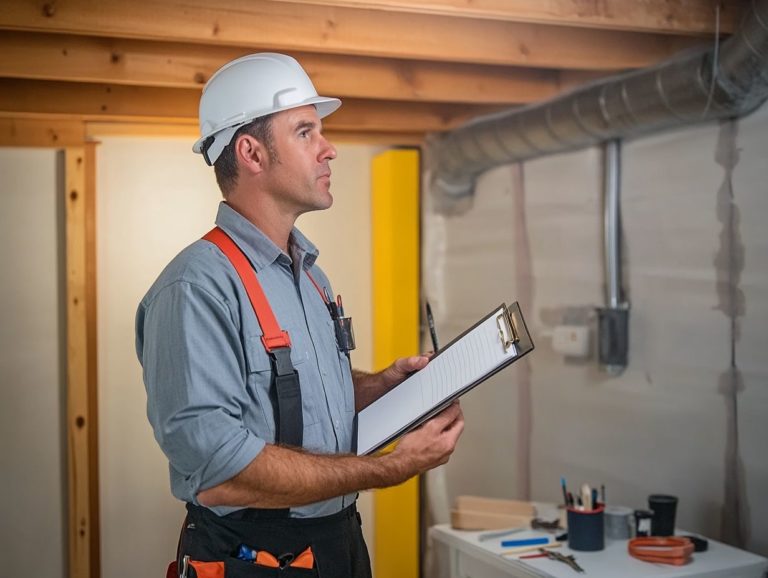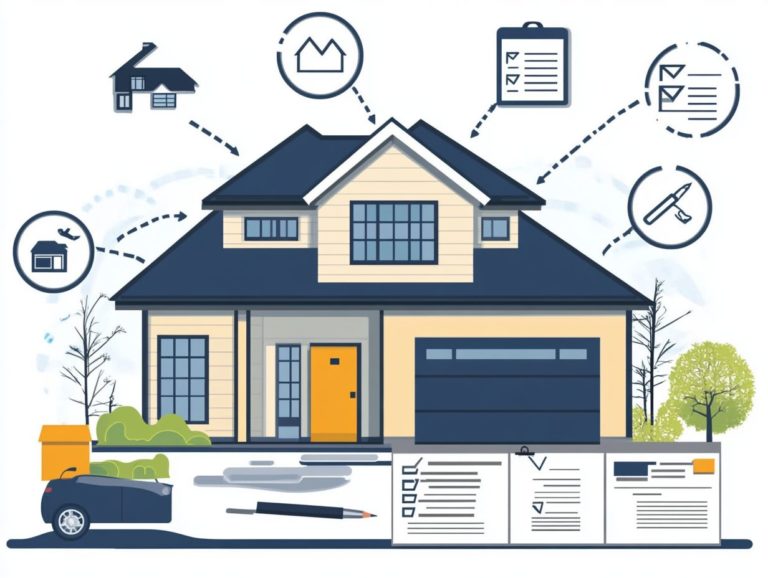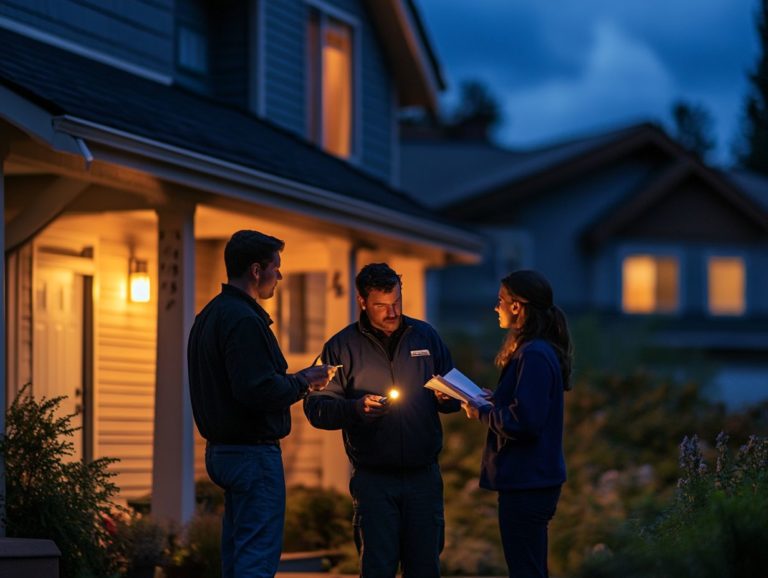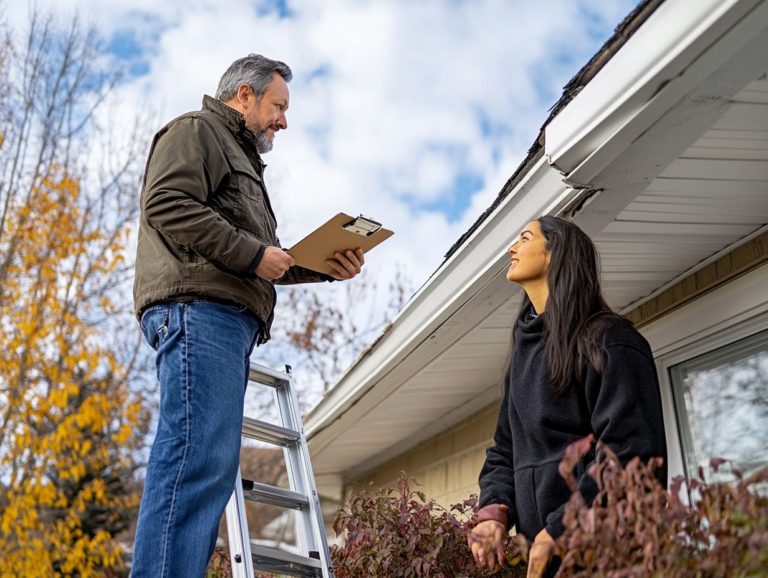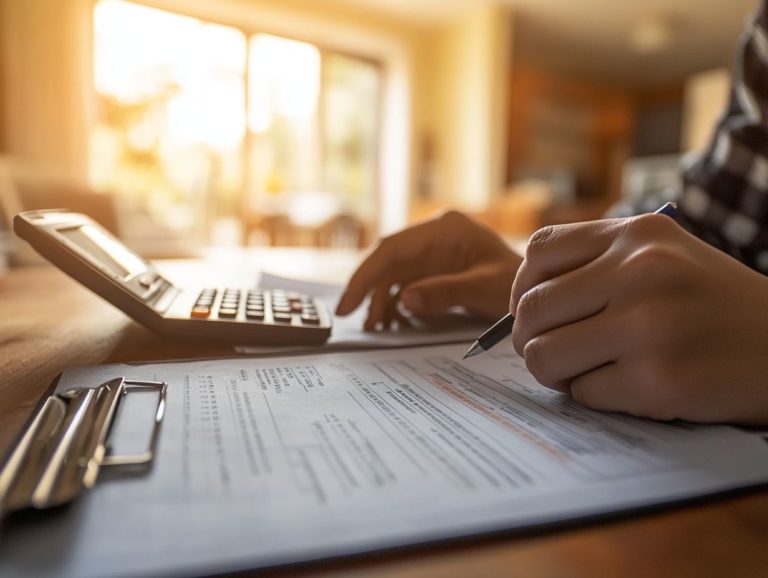How to Ensure Your Home is Inspection Ready
Maintaining a home is an ongoing journey, and regular inspections are essential to this process. Whether you re a proud homeowner or in the midst of buying, understanding the significance of home inspections can save you from unexpected and costly surprises later on.
Get ready to explore everything you need to know, from preparing for a home inspection with a handy checklist to pinpointing common issues that might arise.
You ll also find DIY tips and valuable advice on hiring a professional inspector. By the end, you ll be well-equipped to keep your home in impeccable condition, ready for any future inspections that may come your way.
Contents
- Key Takeaways:
- Importance of Home Inspections
- Preparing for a Home Inspection
- Common Issues Found During Inspection
- DIY Home Inspection Tips
- Hiring a Professional Inspector
- Maintaining Your Home for Future Inspections
- Frequently Asked Questions
- What does it mean to have a home that is “inspection ready”?
- Why is it important to ensure my home is inspection ready?
- What are some key areas to focus on when preparing for a home inspection?
- How can I improve the curb appeal of my home to make it inspection ready?
- What are some common red flags that could affect the inspection readiness of my home?
- Should I hire a professional to help me prepare my home for an inspection?
Key Takeaways:

- Regular home inspections are crucial for maintaining the safety and value of your home.
- Prepare for a home inspection by following a step-by-step checklist and addressing any identified issues.
- Keep your home inspection-ready by regularly maintaining and addressing any problems that arise.
Importance of Home Inspections
Home inspections are vital in the real estate process, offering invaluable insights into a property’s condition and uncovering potential issues that may affect both buyers and sellers.
A thorough home inspection provides a detailed report that not only identifies existing problems but also offers recommendations for repairs or maintenance. This information can significantly influence the home’s value and facilitate a smoother transaction.
For home buyers, a pre-listing inspection can uncover necessary improvements, while sellers can take advantage of this opportunity to address any concerns upfront, enhancing their property’s appeal in the market.
Why Regular Inspections are Necessary
Regular home inspections are vital for ensuring the safety and functionality of your property. They can uncover hidden issues within essential systems such as heating, ventilation, and air conditioning (HVAC), plumbing, and electrical systems.
These inspections reveal safety features that may not be obvious, guaranteeing that everything is running smoothly.
For example, catching potential hazards like pest infestations early can save you from expensive repairs and health risks down the line. Recognizing the significance of thorough inspections enhances the integrity of your home and provides peace of mind, knowing you re protecting your investment for years to come.
Preparing for a Home Inspection
Preparing for a home inspection is essential for both sellers and buyers. By engaging in meticulous cleaning and decluttering, you can greatly enhance the inspection process and positively impact the final inspection report. For more detailed guidance, check out this how to prepare your home for a successful inspection.
Step-by-Step Checklist
A thorough step-by-step checklist can transform your preparation for a home inspection, ensuring that crucial areas like the HVAC system, plumbing, electrical work, roof, and foundation receive careful attention. For detailed guidance, refer to this how to prepare for a home inspection: essential steps.
This proactive approach not only uncovers potential issues but also provides both buyers and sellers with a clearer understanding of the property’s condition.
- Sellers can enhance the property s overall appeal by addressing these key components before the inspection.
- Buyers can approach the inspection process confidently, knowing they ve left no stone unturned.
Staying informed about what inspectors will focus on can significantly influence the final report, affecting negotiations and overall satisfaction in your buying or selling journey.
Common Issues Found During Inspection

During a home inspection, you ll often encounter a range of common issues, from minor repairs to significant foundation concerns.
These findings can profoundly affect both the safety of the property and its overall value, as highlighted in the inspection report.
Don t wait until it s too late; regular inspections can save you thousands in repairs.
Identifying and Addressing Problems
Identifying and addressing issues uncovered during a home inspection, as highlighted in the inspection report, is essential for ensuring your home’s safety features and preserving its overall market value. Act fast to fix these problems and keep your home safe!
You should take the time to carefully look over the report, paying attention to both minor and significant issues that could affect your property.
Common problems might include:
- Outdated electrical systems
- Plumbing leaks
- Signs of pest infestations
By prioritizing these concerns, you can tackle minor repairs, such as fixing leaky faucets or replacing worn-out insulation. This proactive approach helps prevent larger problems down the line.
You should also implement pest control measures, like sealing entry points or using traps, to avoid facing more extensive damage later on. Proactively addressing these challenges not only keeps your home safe and appealing but also contributes to its longevity and value.
DIY Home Inspection Tips
Conducting a DIY home inspection gives you the power to identify potential issues before they escalate. With the right preparation tips for your home inspection, you can streamline the inspection process while also enhancing your home’s curb appeal!
What You Can Do to Prepare
To prepare for your DIY home inspection, focus on cleaning, decluttering, and ensuring all access points to critical areas are clear and easily accessible for a thorough evaluation. For detailed guidance, check out this resource on how to prepare your home for an inspection. This proactive approach paves the way for a more effective inspection.
Start by organizing spaces like attics and basements, where clutter often conceals critical problems. Ensure areas such as electrical panels and plumbing access points are free from obstruction by furniture or storage. Remember, cleanliness is key; a tidy environment allows for a more accurate assessment of your home s condition.
By attending to these details, you can significantly enhance the overall effectiveness of your inspection, paving the way for timely maintenance and, ultimately, peace of mind. Don t wait act now to protect your home!
Hiring a Professional Inspector
Hiring a professional home inspector offers you invaluable expertise and a thorough inspection report that can significantly enhance your understanding of the property’s condition. This includes essential systems, such as heating, ventilation, and air conditioning (HVAC), ensuring that you are well-informed whether you are buying or selling a home.
What to Look for in an Inspector
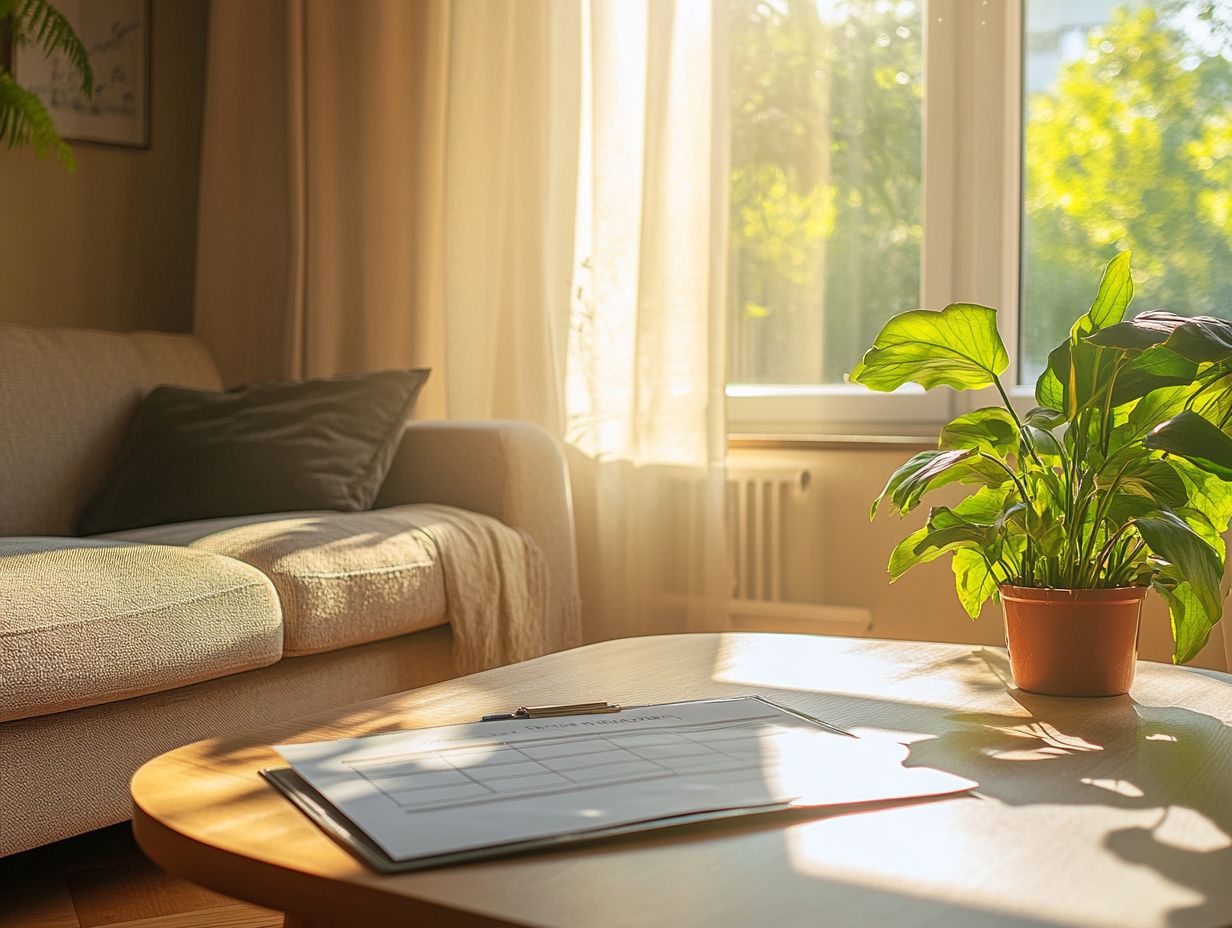
When you’re hiring a home inspector, it s essential to take a close look at their qualifications, experience, and references to ensure a comprehensive and trustworthy inspection process. This choice can greatly affect the quality of the inspection report, ultimately influencing your investment.
Seek out inspectors who possess relevant certifications and are members of professional organizations, as this typically reflects a strong commitment to industry standards. Reading client reviews can also be invaluable, offering insights into the inspector’s reliability and thoroughness.
Don t hesitate to interview potential candidates about their specific areas of expertise; this will help you determine how well they can cater to your unique needs.
Keep in mind that a knowledgeable inspector has the potential to uncover issues that might otherwise slip through the cracks, ultimately saving you both money and stress in the long run.
Maintaining Your Home for Future Inspections
Regular maintenance is crucial for keeping your home in pristine condition and prepared for future inspections. This diligence ensures that safety features remain intact and that potential issues, such as foundation problems, are addressed promptly.
Investing time in this upkeep not only enhances your home s value but also provides peace of mind. Schedule your inspection now to ensure safety and peace of mind!
Tips for Keeping Your Home Inspection Ready
To keep your home inspection-ready, regular maintenance and a keen eye for detail can make a world of difference. Focus on cleaning, decluttering, and checking safety features to ensure everything remains in prime condition.
Establish a routine that blends daily tasks with monthly checks. Start with a comprehensive cleaning schedule that includes:
- Dusting
- Vacuuming
- Deep-cleaning carpets
A spotless environment enhances visual appeal and helps you spot potential issues before they become major headaches. Regular safety checks are essential. Make it a point to test smoke detectors, ensure carbon monoxide alarms are operational, and inspect fire extinguishers.
Don’t overlook scheduling regular checks of your appliances and systems, such as heating and cooling systems and plumbing. Stay ahead of costly repairs by regularly checking your home’s systems!
Frequently Asked Questions
What does it mean to have a home that is “inspection ready”?
Homes that are “inspection ready” are well-maintained and adhere to all safety and building codes. This means that the home is in good condition and does not contain any potential hazards or issues that need to be addressed. For more details on ensuring your home meets these standards, check out how to prepare for a home inspection.
Why is it important to ensure my home is inspection ready?
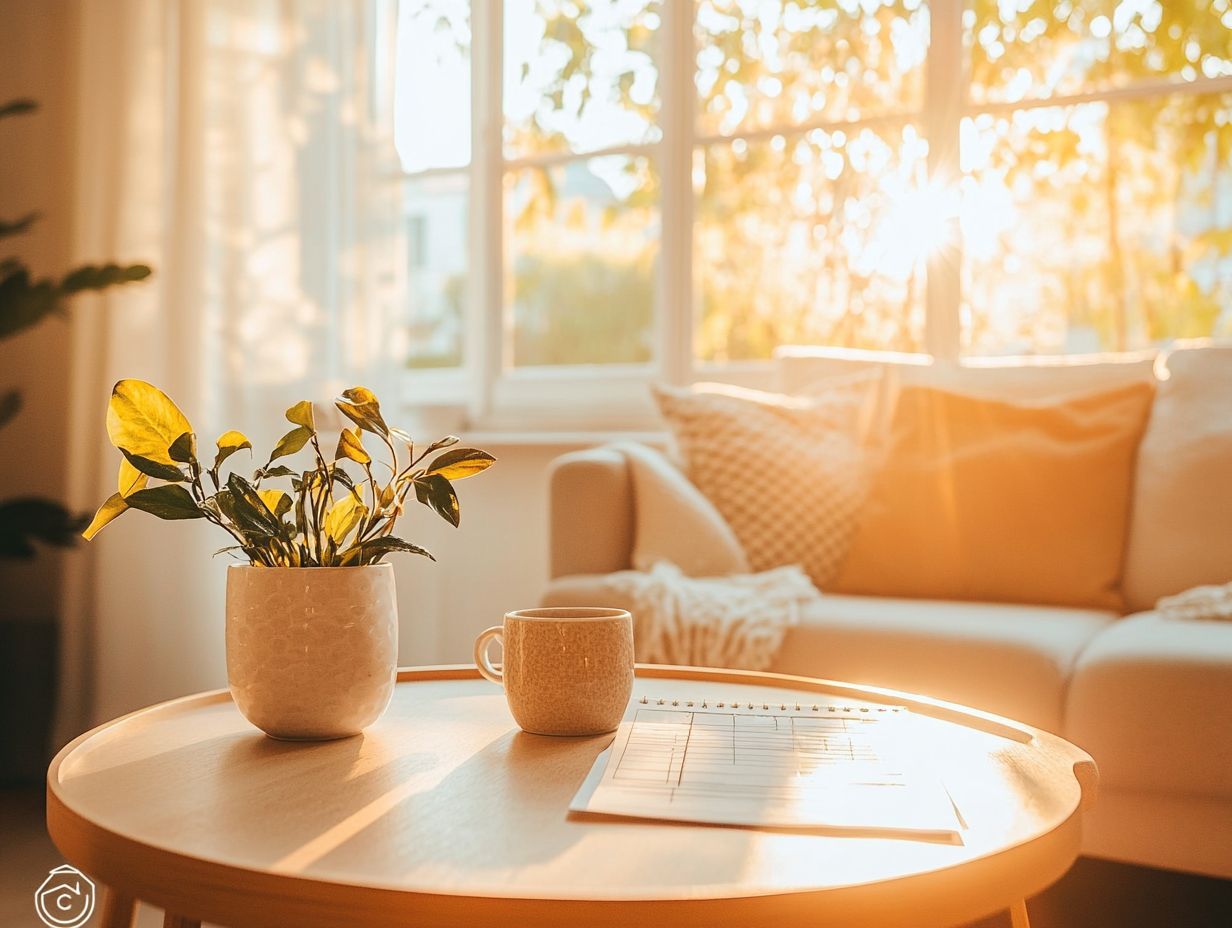
Having a home that is inspection ready is important for several reasons. First, it can help you avoid any unexpected repairs or issues during an inspection. Secondly, following guidelines on how to ensure your home is prepared for inspections can make the process of selling or renting your home easier and smoother.
What are some key areas to focus on when preparing for a home inspection?
Key areas to focus on include the exterior of your home (roof, siding, foundation), plumbing and electrical systems, heating and cooling systems, and any potential safety hazards such as mold or lead paint.
How can I improve the curb appeal of my home to make it inspection ready?
Improving your home’s curb appeal can make a big difference in how it is perceived during an inspection. Simple ways to enhance curb appeal include trimming overgrown bushes or trees, adding fresh mulch to flower beds, and ensuring that your lawn is well-maintained.
What are some common red flags that could affect the inspection readiness of my home?
Common red flags include water damage, foundation issues, outdated electrical or plumbing systems, and the presence of pests such as termites or rodents. Addressing these issues before an inspection is crucial to avoid potential problems.
Should I hire a professional to help me prepare my home for an inspection?
While it is not necessary to hire a professional, having an expert’s opinion can be beneficial. A professional can identify potential issues that may arise during an inspection and provide guidance on how to address them. Additionally, you can learn how to prepare for a home inspection as a seller to improve the overall appearance and readiness of your home for an inspection.
Begin your journey to a flawless inspection today!

